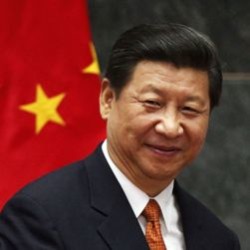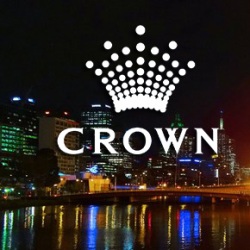Criminal Activity Spikes Following Macau Corruption Crackdown

In 2012, the Chinese government resolved to crackdown on corruption and abuse of power inside the Communist Party, no matter if it involved a high-ranking official or lowly civil servants, and to date more than one hundred “tigers and flies” have been arrested and removed from office, including national leaders, party officials, military officers, and a number of senior executives for state-owned companies.
Another casualty of the China’s anti-corruption campaign has been the Macau economy, the country’s only legal gambling resort which Beijing currently views as a playground where corrupt Communist Party officials working together with controversial junket operators can gamble and launder their stolen public money. While President Xi Jinping’s (photo) campaign seems to be slowly bearing fruit, recent news reports suggest criminal activity has also nearly doubled in the first quarter of 2015, with crimes on the increase including arson attacks and triad groups taking hostages in order to retrieve gambling debts.
Clampdown On Corrupt Junkets
Junket operators are an important part of Macau’s gambling industry as these businesses help funnel high-rollers to Macau’s casinos, and last year VIP business accounted for a huge $45 billion of overall revenues. Junket operators are able to do this by enticing high-rollers with generous lines of credit, after which the operators then receive a commission from the casinos for their custom. Nevertheless, some junkets have been found to have links to organized crime and it is these unscrupulous organizations which have been targeted by the authorities. As a result, Macau’s Gaming Inspection and Coordination Bureau (DICJ) now requires junket businesses to adhere to a more transparent way of doing business, including filing frequent records verifying their employees’ credentials. As Steve Vickers from security consulting company Steve Vickers Associates, explains:
“They’re just trying to put a collar on the junkets, not eliminate them. They want the ability to pull financial levers, so junkets need to be acceptable and under supervision.”
Triads Compensating For Damaged Revenues
Just like Macau’s land-based casinos, junket operations have taken a severe beating from the Chinese anti-corruption campaign and subsequent downturn in gambling revenues. In 2014, for instance casino revenues fell by 2.6%, and this year the decline has accelerated further with the resort seeing revenues plunge by 39% to $2.4 billion in April, marking 11th consecutive months of falling revenues, 9 of which have been double-digit. A theory explaining the simultaneous spike in criminal activity also noted has been suggested by an unnamed casino industry source, who said he believes the triads are currently stepping up their operation in order to make up for the disruption in money flow to their organization. As the source explains:
“Business is business for these guys, and if they can’t get their pound of flesh one way, they’ll get it another way”
Becoming More Family-Oriented
While gambling revenues continue to plunge in Macau, the Chinese government has moved away from promoting the enclave’s casino industry to instead ordering Macau to pursue a more family friendly tourist model, similar to the one used in Las Vegas. Consequently, Macau has issued directives for its casinos to become more family-oriented and offer entertainment packages that also appeal to children. Against this backdrop, Macau’s government has also been trying to attract families from international markets outside of China, including the huge market of India with 1.252 billion people, only slightly smaller than that of China with a population of 1.357 billion. As Arzan Khambatta from the Macau Government Tourist Office explains:
“In 2014, the visitor arrivals from India to Macau were 1,670,000. Macau has been witnessing a 4.8 per cent growth year-on-year. We expect it to do much better this year. This is because Macau is a perfect destination for leisure as well as Meetings, Incentives, Conference and Exhibitions (MICE) activities.”
Maintaining Social Public Security
Nevertheless, gambling will still continue to be an integral part of the island’s future, and Beijing knows that if Macau’s gambling industry suffers then there will be a huge social costs to be paid by Macau’s residents. However, a balance has to be struck if Macau is to also realize its goal of becoming a tourist destination which appeals to families, and clamping down on crime and corruption it a vital part of that plan. Addressing the recent uptick noted in Macau’s crime figures, Secretary for Security Wong Sio-chak said that Maau was still a safe environment, and that illegal activities related to loan-sharking and hostage taking did not necessarily “provide enough evidence that the current adjustment in the gaming industry has affected Macau’s social public security.”








